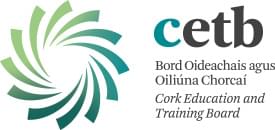Over 96% of learners surveyed recommend taking part in ETB Further Education & Training courses
A study of Further Education & Training (FET) provided by Ireland’s 16 Education & Training Boards (ETBs) published today has found that the benefits and outcomes of FET for participants include personal, educational, social, employment and community gains:
- Learners considered to benefit most from active inclusion were people with literacy, numeracy, and digital skills challenges (89%), early school leavers (85%), people with mental health issues (83%), people who are unemployed (82%) and people experiencing, or at risk of, poverty and social exclusion (79%)
- Most common benefits and outcomes of taking part in courses identified by respondents were personal benefits and outcomes (76%), education benefits and outcomes (67%), social benefits and outcomes (65%), employment benefits and outcomes (33%) and community benefits and outcomes (30%).
- Vast majority (94%) of respondents either agreed or strongly agreed that people from different backgrounds were accepted and made feel welcome, 88% of respondents either agreed or strongly agreed the environment in which ETB courses take place are accessible and inclusive to people with all abilities and from all backgrounds. Almost all (97%) respondents said they would recommend taking part in an ETB course to others.
Welcoming the Study of the role, contribution and impact of ETB FET Services on Active Inclusion in Ireland, John Kearney, Chief Executive of Cavan and Monaghan ETB and representing the CE Forum stated: “Education & Training Boards are civic anchors in their communities, and the lifelong learning they provide is for everyone. No matter who you are and where you come from, this study shows you will be made to feel welcome and can benefit from the personal, education, social, employment and community outcomes ETBs deliver.”
Launching the papers in Dublin’s docklands and making the keynote address, Ted Fleming, Adjunct Associate Professor of Adult Education in Columbia University focussed on mental health and how education can deliver “recognition”: a willingness to hear and recognise the truth of the learner’s life. He stated, “To be recognised is in itself both of huge personal benefit and when the state, through public policy, recognises the individual worth of all… this is a significant political event”.
Cork ETB Learner Catherine Pattinson outlined her family’s active inclusion journey at the conference, at which Olivia O’Leary was MC.
The study, and a companion paper on Community Education also launched today, include case studies of some of the programmes delivered by ETBs. Commenting on these, ETBI’s Director of Further Education & Training Fiona Maloney said: “Through accredited and non-accredited programmes, ETB’s deliver everything from an age friendly tech programme to kayaking for traveller dads and a cultural champions programme for Ireland’s new communities. Other programmes tackle rural and urban isolation, mindfulness for people living with a disability and woodwork for those in recovery from addiction as well as community leadership programmes.” She added that “ETB Active Inclusion is also about providing the supports needed to support students on the learning journey.”
The most common type of learner supports received by respondents in the study were digital skills support (60%), loan of equipment/device, e.g., computer (59%), guidance/ counselling (50%) and literacy/numeracy support (43%).


